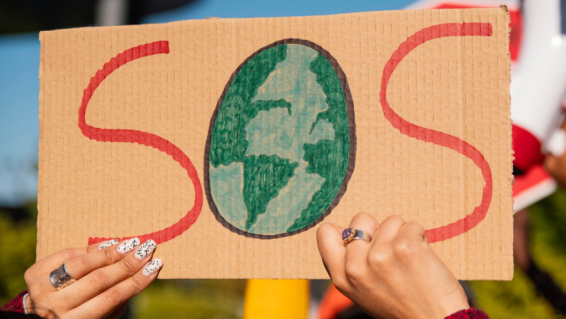
How to talk about climate without saying ‘climate’
Marketers know that words can make or break a product. Politics is no different. For years, climate advocates have tried to sell Australians on the need for action. The problem isn’t that people don’t believe in it, it’s that they don’t buy it.
Patrick Leyland, chief digital officer at Populares, and former director of digital campaigns for the Australian Labor Party, explains.

Clean energy is a dirty term
When most people hear the word “climate”, they don’t think about clean jobs or cheaper energy. They think about cost. They think about policy fights, moralising, and someone else’s agenda. The word has become so overloaded with meaning that it now triggers resistance even among people who agree with the goal.
That’s why effective communication about the energy transition often has nothing to do with “climate” at all. The messages that cut through are about control, pride, and opportunity. They’re about the things people can see and touch: jobs, manufacturing, cheaper power and stronger regions. Not abstract emissions targets or global negotiations.
Any marketer worth their salt knows you don’t lead with features, you lead with benefits. Climate policy has been all features for too long: percentages, targets, technical jargon about baseload and grid stability. Meanwhile, the benefits that actually matter to people have been buried in the fine print. When was the last time you heard a politician talk about renewables without mentioning emissions? Yet emissions are the feature. The benefits are lower bills, local jobs, and freedom from price spikes caused by international conflicts.
The first rule of persuasion is to start where people are, not where you wish they were. In regional and outer-suburban Australia, that means talking about self-reliance and stability, not sacrifice. It means speaking in the language of builders, not believers. When you frame clean energy as an industrial revolution made in Australia: refining our own minerals, building our own batteries, powering our own factories, people listen.
Consider how successful brands position themselves. They don’t sell products; they sell identities and aspirations. Nike doesn’t sell shoes – it sells athletic excellence. Apple doesn’t sell computers and phones – it sells creative empowerment. The clean energy transition needs the same treatment. We’re not selling wind turbines and solar panels. We’re selling Australia’s next chapter of prosperity, where we make things again, where regional towns thrive again, where young people don’t have to leave home to find good work.
And when you connect it to everyday realities, the message takes off. Tell people renewables protect them from volatile global markets and foreign wars; that solar and wind don’t get more expensive when Russia invades Ukraine. That’s not environmentalism, it’s energy independence. It’s a values story: national strength, local control, and a fair go for the regions.
The mining boom taught us something important about Australian psychology. People got excited not just because of the wealth it created, but because it made Australia essential to the world. We weren’t just lucky; we were needed. The clean energy transition offers the same narrative opportunity. Australia can be the renewable energy superpower, the critical minerals champion, the green hydrogen leader. But only if we tell that story right.
Contrast that with how we too often communicate climate issues: in moral or apocalyptic terms, with images of wind farms at sunset or politicians hugging trees. That language might mobilise those already on side, but it pushes away the persuadable middle. They don’t want to be told they’re part of the problem; they want to be shown how they can be part of the solution.
Marketing research consistently shows that negative messaging creates paralysis, not action. Fear might get attention, but aspiration drives behaviour change. The most effective campaigns paint a picture of what’s possible, not what’s catastrophic. They make people want to be part of something bigger, not guilty about something they’ve done.
The shift in language isn’t just semantic; it’s strategic. Talk about net zero and people hear rules and costs. Talk about clean industry hubs, local jobs, and Australian-made power, and they hear ambition, opportunities and prosperity. The best marketing always answers a simple question: what’s in it for me? Climate communication too often forgets to.
Politicians are learning this lesson slowly. The next federal election will be fought as much over who owns the story of the transition as over the transition itself. Those who speak in the language of jobs, industry, and national renewal will win it. Those who keep speaking in the language of carbon and targets will not.
The smartest political operators are already making this shift. They’re touring battery factories, not wind farms. They’re announcing manufacturing jobs, not emissions reductions. They’re telling stories about families whose bills have dropped, not tonnes of carbon avoided.
So if you want to sell climate action, stop selling climate. Sell Australia’s future: built, powered, and owned by us.



